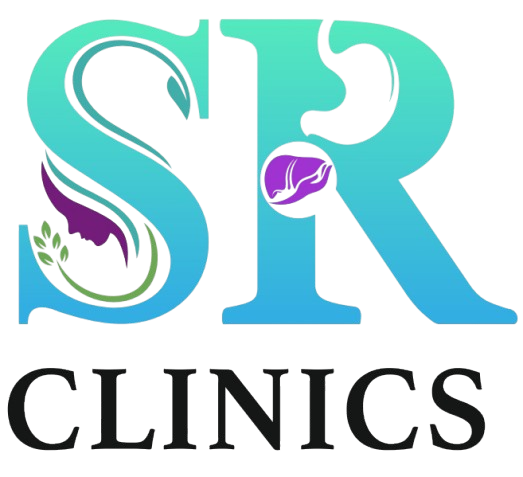
Diarrhea
Diarrhea is a common condition characterized by loose, watery stools and increased bowel movements. It can be acute (short-term) or chronic (lasting more than four weeks). Diarrhea is often caused by infections, food intolerance, digestive disorders, or medication side effects. While mild cases resolve on their own, persistent diarrhea can lead to dehydration and nutrient loss.
At SR Clinic, we provide expert care for diarrhea, focusing on accurate diagnosis, effective treatments, and preventive measures. Our specialists help manage both acute and chronic cases with tailored treatment plans to restore digestive health.
Steps for Managing Diarrhea
- Hydration: Drink plenty of fluids, including oral rehydration solutions (ORS), to prevent dehydration.
- Dietary Adjustments: Follow a BRAT diet (Bananas, Rice, Applesauce, Toast) and avoid dairy, spicy, and greasy foods.
- Medications: Depending on the cause, anti-diarrheal medications, probiotics, or antibiotics may be prescribed.
- Identifying Triggers: Testing for infections, food allergies, or underlying conditions such as IBS or Crohn’s disease.
- Medical Consultation: Seek medical help if diarrhea persists for more than a few days or is accompanied by severe symptoms like high fever or blood in stool.
Frequently Asked Questions
Common causes include viral or bacterial infections, contaminated food or water, food intolerances, digestive disorders, and certain medications.
Seek medical attention if diarrhea lasts more than three days, is accompanied by severe dehydration, high fever, blood in stools, or intense abdominal pain.
Practice good hygiene, wash hands frequently, drink clean water, and avoid consuming undercooked or contaminated food.
Stick to bland foods like bananas, rice, applesauce, and toast. Avoid dairy, high-fat foods, caffeine, and alcohol until recovery.
